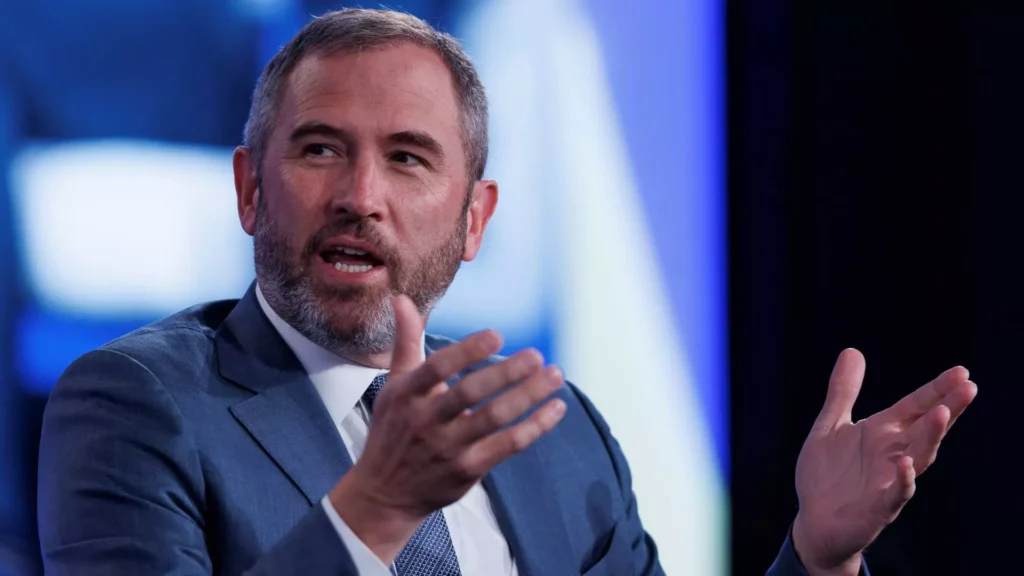The cryptocurrency sector in the United States has faced mounting scrutiny and regulatory challenges over recent years, creating an atmosphere of uncertainty for businesses operating within this evolving market. At the forefront of this tumultuous environment is Ripple Labs CEO, Brad Garlinghouse, who articulates a sense of cautious optimism for the future of crypto regulation post-elections. Despite his sustained skepticism regarding U.S. regulatory frameworks, Garlinghouse believes that a significant change is on the horizon. His assertion — that the upcoming elections could catalyze a more favorable landscape for digital currencies and innovation — is rooted in both current observations and historical context.
Ripple, a key player in the cryptocurrency sphere predominantly recognized for its association with the XRP token, has operated a substantial global payments business, primarily catering to banks and financial institutions. Interestingly, about 95% of Ripple’s business is conducted outside the United States, demonstrating how regulatory uncertainties may stifle innovation and engagement domestically, pushing businesses to seek opportunities in more accommodating foreign markets. Garlinghouse’s perspective reflects a broader concern: the current regulatory environment in Washington, when juxtaposed with potential shifts following the elections, may illuminate the path forward for not only Ripple but the wider crypto ecosystem.
Ripple’s navigations through legal waters have been notably tumultuous. The company’s ongoing battle with the U.S. Securities and Exchange Commission (SEC) has drawn considerable attention, particularly after the court ruling that classified XRP as a non-security when sold to retail investors on exchanges. This was a pivotal moment not just for Ripple but for the entire digital asset market, which had been teetering on the brink of an overarching regulatory overhaul. Garlinghouse’s advice to fintech startups to consider incorporating outside the U.S. underscores an imperative for agility amid adversity; a tactical move that capitalizes on favorable international regulations while sidestepping potential pitfalls at home.
Despite these challenges, Garlinghouse’s outlook remains optimistic. He articulates confidence that the cryptocurrency industry will ultimately course-correct from its current struggles, suggesting that the perceived setbacks might only serve as temporary hurdles. His assertion that “we’re going to end up in a better place” speaks volumes about his belief in the resilience of the crypto sector. However, it raises essential questions about the extent of changes that will occur in regulatory frameworks and the timeline in which they might manifest.
As political affiliations increasingly shape perspectives on cryptocurrency, Garlinghouse’s insights reveal a distinct partisan divide within the industry. He acknowledges that sentiments about crypto are becoming polarized, reflecting broader national political dynamics. Garlinghouse’s observations regarding donations to pro-crypto political action committees illustrate Ripple’s strategic positioning within this partisan landscape. By aligning with individuals such as Vice President Kamala Harris and advocating for pro-innovation policies, Ripple aims to influence the political discourse around digital currencies.
Garlinghouse’s differentiation between the current administration’s approach and forthcoming elections accentuates a sense of urgency for reform. He directly critiques the Biden administration’s perceived hostility towards crypto, referencing measures such as “Operation Chokepoint 2.0,” which many in the crypto community view as an initiative stifling industry growth and innovation. His assertions echo a growing frustration within the digital currency community as regulatory pushback becomes more pronounced.
While Garlinghouse is yet to formalize his backing for any specific presidential candidate, his alignment with figures like attorney John Deaton, who challenges anti-crypto incumbents such as Senator Elizabeth Warren, reflects a broader desire within the industry for more supportive regulatory frameworks. The upcoming election represents not just a chance for new leadership but also potentially transformative change for how cryptocurrencies are perceived and regulated.
The conversation surrounding crypto regulation is not merely an exercise in policy but rather pivotal to the broader economic positioning of the United States in a rapidly evolving digital landscape. As companies like Ripple advocate for innovation and engagement within the legislative realm, the interplay between technology, regulation, and political will emerges as a critical nexus for the industry’s future growth.
While challenges abound and skepticism lingers, leaders in the cryptocurrency space like Brad Garlinghouse are advocating for positive change and signaling an opportunity for the industry to reshape its landscape. The results of the forthcoming elections have the potential to direct the trajectory of not only Ripple but the entire cryptocurrency ecosystem as it navigates through regulatory complexities toward a more promising future.

